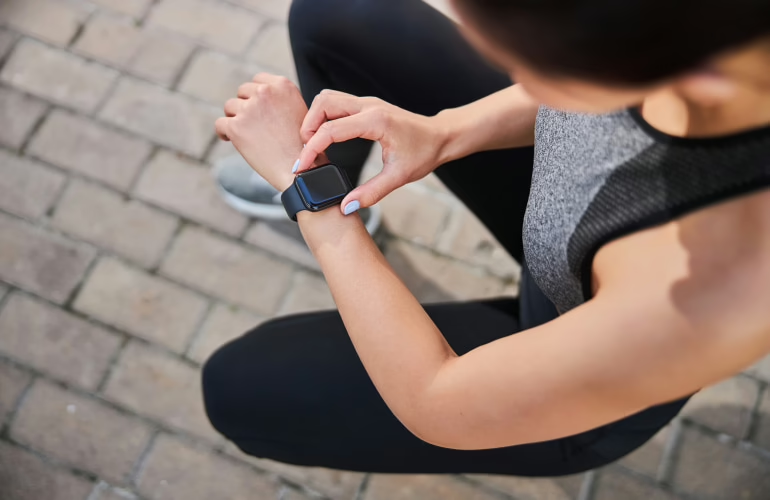Advertising Disclosure
These popular apps are secretly (or not so secretly) collecting your data

It’s no longer a surprise that the websites and apps we use access our data through our phones. When you sign up for an app or website, you are virtually signing away some part of your identity. They know who and where you are, what you buy and when and why. With sophisticated algorithms, tech companies know you better than your friends do. Apps that collect your data know you better than you know yourself. But even though you know full well they’re collecting, saving and selling your data, just how much they do it may surprise you.
APPS THAT COLLECT YOUR DATA – FACEBOOK
Everyone knows Facebook collects its users’ data. That’s practically the company’s entire business model. But did you know that Facebook can collect data about you even if you don’t use Facebook? It happens when Facebook users share their phone contacts to the app. So even if you keep your life Facebook free, not all your friends do. If you’re in anyone’s contact list who shared that list with the app, Facebook knows you. After Facebook collects enough data about you through these means, it creates a “shadow profile” for you. It’s like you have a Facebook account even if you never signed up for Facebook.
Also, you may think you’re not on Facebook, but are you on Instagram or WhatsApp? If so, then you’re on Facebook. Facebook owns Instagram and WhatsApp, allowing the interactions you have there to collect your data as well. But there are some things you can do if you don’t want to quit the apps completely. One thing you can do is limit your ad data collection on the web under the Ad Preferences Page. Under Ad settings, you’ll hit Not Allowed, which will limit the data Facebook can collect from you under Ads.
APPS THAT COLLECT YOUR DATA – CLUBHOUSE
Clubhouse is a buzzy new audio-chat social-networking app that allows users to listen in to conversations, interviews, and discussions. Though still in beta, Clubhouse is already raising security concerns.
The chief concern about the app is that it records voice chats. According to the app’s community guidelines, Clubhouse temporarily records the audio “in a room while the room is live,” doing do “solely for the purpose of supporting incident investigations.” A recent Stanford study concluded that users should assume all audio on Clubhouse is being recorded despite the app’s privacy policies.
Clubhouse recently blocked China from its app. After the Stanford report found metadata from a Clubhouse room was being sent to several Chinese networks, Clubhouse announced it would add additional encryptions and other security measures to ensure users’ data isn’t being sent to China.
APPS THAT COLLECT YOUR DATA – TIKTOK
Tik Tok, the newest and most popular app, especially among Gen Z is worth investigating. Although the trends of viral videos and popular dances take over what we think of Tik Tok, we must also remember that it’s an app and it’s probably collecting your data.
Some of the data it collects from it’s users include: which videos are we consuming and interacting (commenting) with, location data, what type of phone and operating system is used, and keystroke patterns when typing. One particularly concerning data tool Tik Tok uses is accessing iPhone users clipboard. This feature allows someone on their iPhone to copy and paste texts or information quickly from one place to another. Tik Tok claims it wanted access to stop people from spamming the app with copying and pasting the same content repeatedly. The app has since been updated to improve it’s anti-spamming software. Although Apple reported several apps use the same technology, the new update on it’s operating system informs users when their clipboard technology is being used in Tik Tok as it has drawn heavy concern.
APPS THAT COLLECT YOUR DATA – TWITTER
Sending a message in under 280 characters is old news, but still a popular way to find community. Unfortunately Twitter hasn’t escaped the fire that many apps encounter when dealing with user’s privacy and data sharing. Similar to other large apps, Twitter was discovered to be sharing user’s private information to benefit their marketing. Although Twitter claimed it was an error, it’s concerning because the data shared (phone numbers and emails) were provided by users to Twitter to use their 2-way security authentication feature.
Making matters worse, Twitter has removed a privacy feature that allowed users to stop sharing information like ads you’ve watched or a tracking feature on your phone. Twitter has defended the move by saying shared data shows the efficiency of advertising on Twitter. Twitter may have removed it’s general data privacy feature, but you can still disable the “Share your data with Twitter’s business partners,” which limits sharing other information including your interests, name, email, phone number or username.








